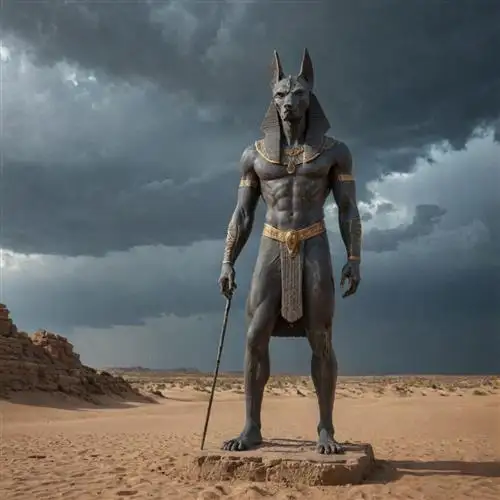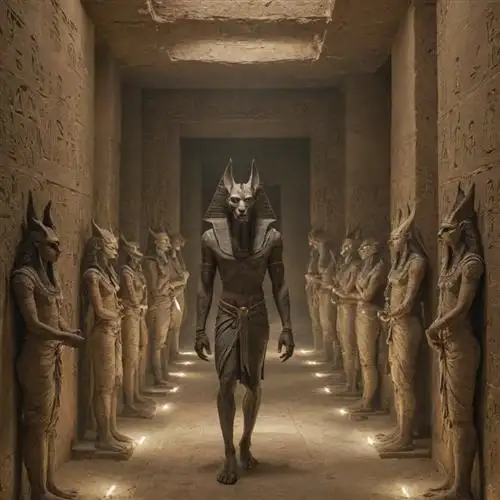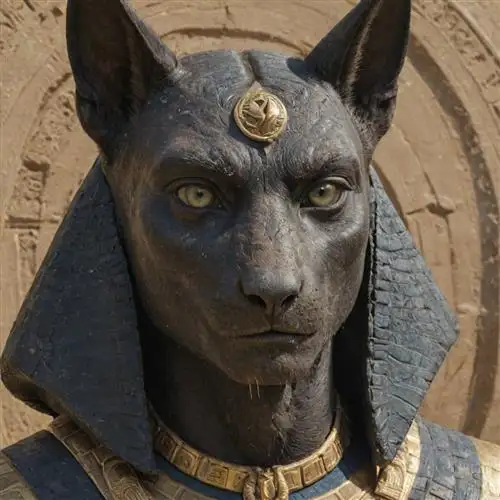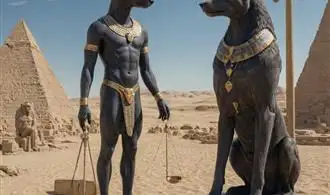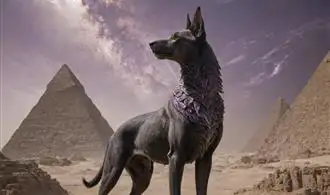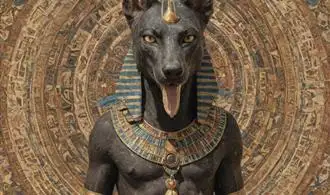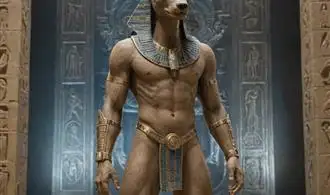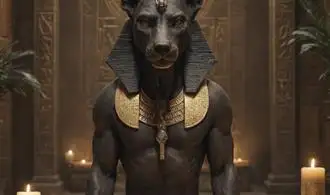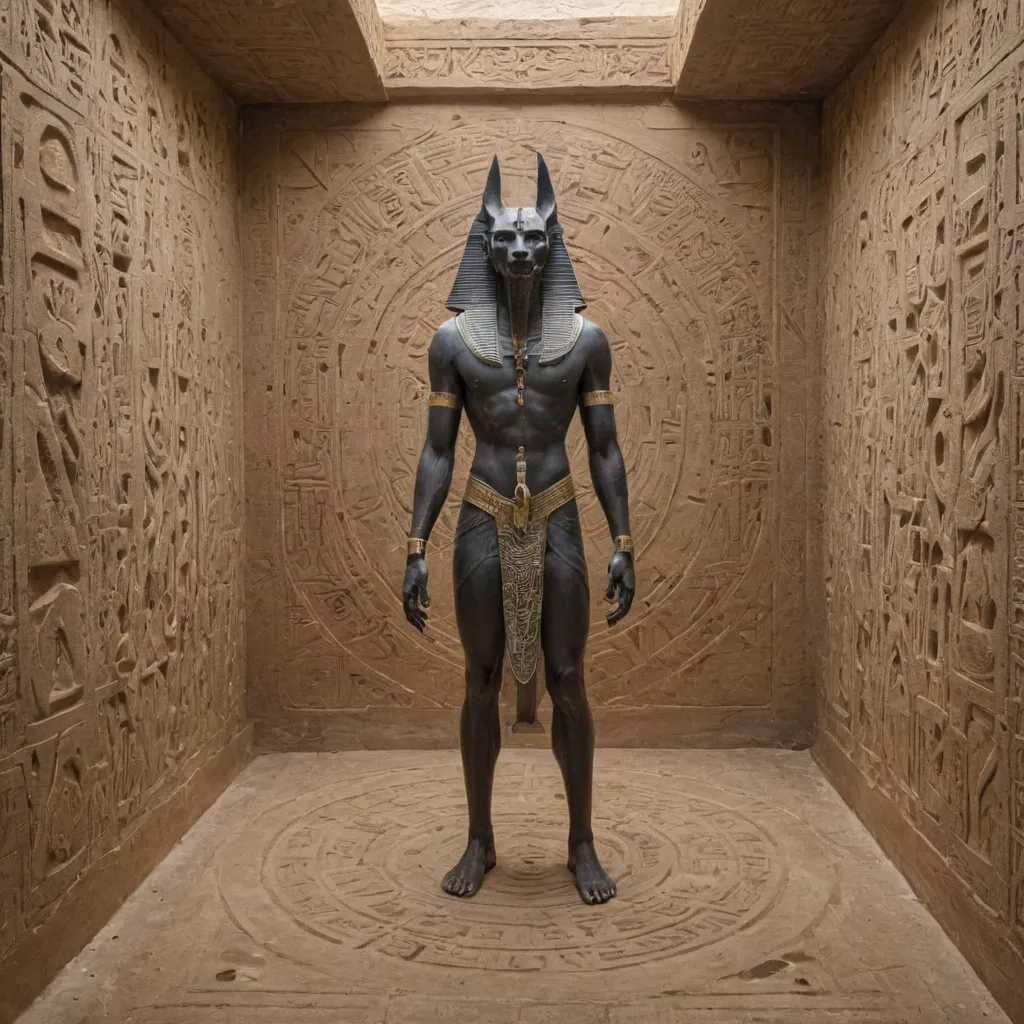
Unraveling the Mysteries of Anubis
Anubis, the ancient Egyptian god of the dead, has long captivated the imagination of spiritual seekers and scholars alike. This enigmatic deity, often depicted with the head of a jackal, holds the key to unlocking profound insights into the nature of the afterlife, the process of transformation, and the very essence of our own spiritual awakening.
At the heart of Anubis' significance lies his role as the gatekeeper between the physical and the metaphysical realms. As the patron of embalming and the protector of the dead, Anubis guides the deceased through the intricate journey of the afterlife, ensuring their safe passage to the realm of the divine. This profound connection to the transition from life to death, and the sacred rites that accompany it, offers a powerful lens through which we can explore the transformative nature of the spiritual journey.
One of the most striking aspects of Anubis' symbolism is his association with the process of mummification. This meticulous and sacred ritual, carried out under Anubis' watchful gaze, represents the shedding of the physical form in order to embrace the eternal and divine. In this sense, Anubis becomes a guide not only for the deceased, but for the living who seek to transcend the limitations of the material world and awaken to their own spiritual essence.
Delving deeper into the myths and legends surrounding Anubis, we uncover a multifaceted deity whose role extends far beyond the realm of the dead. As the weigher of souls, Anubis is responsible for determining the fate of the deceased, evaluating their deeds and aligning them with the cosmic order. This process of judgment and purification serves as a powerful metaphor for the inner work required in our own spiritual awakening, challenging us to confront our shadows, release our attachments, and align our actions with the highest good.
Furthermore, Anubis' association with the color black and his role as the guardian of the necropolis (the city of the dead) have been interpreted as symbols of transformation, rebirth, and the cyclical nature of existence. Just as the night gives way to the dawn, Anubis represents the necessary darkness that precedes the light, the dissolution that precedes regeneration.
Anubis and the Egyptian Afterlife
Anubis, the jackal-headed deity, was a pivotal figure in the Egyptian afterlife. As the god of embalming and the protector of the dead, Anubis played a crucial role in the journey of the deceased through the underworld and into the eternal realm. Understanding the depth of Anubis's influence on the Egyptian afterlife can provide valuable insights into the spiritual awakening and transformation that the ancient Egyptians sought to achieve.
The mummification process, overseen by Anubis, was not merely a practical matter of preserving the physical body; it held profound spiritual significance. The careful and meticulous preparation of the deceased was believed to ensure the preservation of the ka (life force) and the ba (personality) of the individual, allowing them to transition seamlessly into the afterlife. Anubis, with his expert knowledge of the embalming rituals, was responsible for guiding the soul through this crucial stage, ensuring the deceased was ready to face the challenges of the afterlife.
In the Egyptian conception of the afterlife, the journey of the soul was not without obstacles. The deceased had to navigate the treacherous underworld, pass through various gates, and undergo a judgment by the gods before reaching the ultimate destination of the Field of Reeds, a paradise-like realm where the soul could dwell in eternal bliss. Anubis played a central role in this process, weighing the heart of the deceased against the feather of truth, a symbolic representation of their moral character. The outcome of this judgment determined the fate of the soul, whether they would be granted access to the afterlife or be condemned to eternal damnation.
The significance of Anubis in the Egyptian afterlife extended beyond the mummification process and the judgment of the dead. He was also believed to be the protector of the deceased, guiding and safeguarding their souls as they navigated the treacherous underworld. This role of Anubis as a guardian and guide is particularly relevant to the concept of spiritual awakening, as it suggests that the ancient Egyptians saw the afterlife journey as a transformative process, one that required the assistance and intervention of the divine.
Unlocking the Symbolic Significance of Anubis
Anubis, the ancient Egyptian deity with the head of a jackal, holds profound symbolic significance that extends far beyond his traditional role as the god of the dead. This enigmatic figure represents a gateway to deeper spiritual understanding, offering insights into the mysteries of the afterlife, the nature of the soul, and the transformative power of change.
At the core of Anubis' symbolic significance is his role as the guardian of the underworld, responsible for guiding the souls of the deceased through the perilous journey to the afterlife. This liminal position, poised between the realms of the living and the dead, imbues Anubis with a unique perspective on the human experience. He stands as a reminder that death is not the end, but rather a necessary transition to a new phase of existence.
Anubis' canine-like features have long been associated with the duality of human nature, representing both our primal, animalistic instincts and our higher, more refined spiritual aspirations. This duality is reflected in the dual role of Anubis as both protector and judge, responsible for weighing the souls of the deceased against the feather of truth to determine their worthiness for the afterlife.
Beyond his role in the afterlife, Anubis is also closely linked to the concept of transformation and rebirth. His association with the mummification process, a ritual that symbolically prepares the deceased for their journey to the next world, speaks to the transformative power of death and the cyclical nature of existence. By embracing the lessons of Anubis, individuals can gain a deeper understanding of the necessary changes and transitions that occur throughout their lives, and learn to navigate these challenges with grace and resilience.
Anubis' symbolic significance also extends to the realm of the psyche, where he is often seen as a guide to the subconscious and the exploration of the inner self. His presence in dreams and visions can signify a need to confront our deepest fears, to face the unknown, and to ultimately emerge transformed and empowered.
Anubis and the Journey of Spiritual Awakening
In the ancient Egyptian pantheon, Anubis stands as a pivotal figure, his influence extending far beyond the realm of mere mythology. As the god of the dead, embalming, and the underworld, Anubis holds a profound connection to the journey of spiritual awakening. His role as the guardian of the dead and the transition to the afterlife symbolizes the transformative power of death and rebirth, a concept integral to the process of spiritual growth and enlightenment.
Anubis, with his jackal-headed form, is often depicted guiding the deceased through the intricate rituals of mummification, ensuring a smooth passage to the afterlife. This imagery resonates deeply with the concept of spiritual awakening, where the individual must confront and release the ego, or the "death" of the old self, in order to emerge into a state of greater awareness and connection with the divine.
The Egyptian Book of the Dead, a seminal text that outlines the journey of the soul after death, reveals the critical role of Anubis in this process. As the soul undergoes a series of trials and judgments, Anubis stands as the gatekeeper, weighing the heart of the deceased against the feather of truth. This symbolic act represents the need for self-examination, the surrender of the ego, and the acceptance of one's true nature, all of which are central to the path of spiritual awakening.
Moreover, Anubis's connection to the embalming process carries profound metaphorical significance. The careful and meticulous preservation of the physical body mirrors the importance of maintaining a healthy and balanced physical vessel as the soul embarks on its transformative journey. Just as the ancient Egyptians sought to preserve the physical form, the seeker of spiritual awakening must tend to the body, mind, and spirit, creating the necessary conditions for profound transformation.
The jackal-headed deity's presence in the underworld, a realm often associated with the subconscious and the hidden aspects of the self, further highlights Anubis's role in the process of spiritual awakening. By guiding the soul through the darkness and the unknown, Anubis symbolizes the need to confront and integrate the shadow self, the repressed and rejected parts of the psyche that must be brought to light for true transformation to occur.

